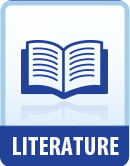|
This section contains 292 words (approx. 1 page at 400 words per page) |

|
Astonishment Summary & Study Guide Description
Astonishment Summary & Study Guide includes comprehensive information and analysis to help you understand the book. This study guide contains the following sections:
This detailed literature summary also contains Bibliography on Astonishment by Wisława Szymborska.
Wislawa Szymborska's "Astonishment," also translated as "Wonderment," is a simple, sixteen-line poem in which the poet asks a series of questions about why she exists in this world in the form that she does. The deeply philosophical poem poses ten questions about the human self, a person's place in the world, and the nature of existence, but it offers no answers to these puzzles. Rather, there is some suggestion that these metaphysical questions cannot be answered at all, and that the best response to the complex and inscrutable world is one of astonishment because the act of asking questions does not get one closer to unraveling the mysteries of existence.
Szymborska published the poem in 1972 in Wszelki wypadek (Could Have), a collection in which the poet tackles philosophical issues as they relate to everyday life. Like other pieces in that volume, "Astonishment" is a deceptively simple work that elicits more questions than it explicitly poses and makes readers aware of the richness, sadness, mystery, and dark joy of being human. The straightforward language, commonplace images, and clean form of the poem work together to create a sense of an accessible, ordinary world that is nevertheless enormously complex and difficult to understand. As with most of Szymborska's poetry, little has been written about "Astonishment," but the work is of particular interest because it echoes many of the remarks made by the poet in her 1996 Nobel lecture. In that speech, the poet talks about the reaction of astonishment to the unfathomable nature of the world. Thus, the poem tackles a subject that is central to the poet's work, introducing concerns about what can be known, the nature of existence, and the status of human beings that figure prominently in her other writings.
Read more from the Study Guide
|
This section contains 292 words (approx. 1 page at 400 words per page) |

|



